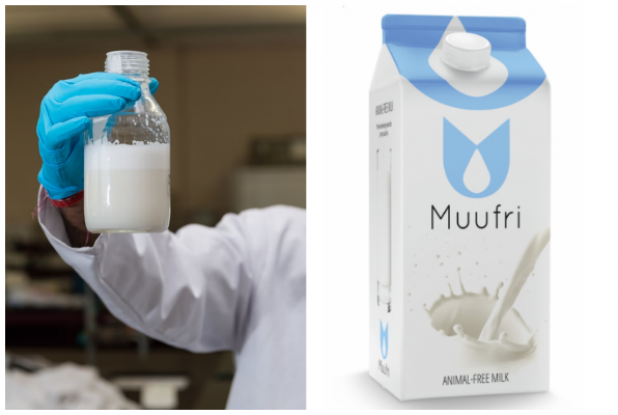Earlier this year, a synthetic dairy start-up called Muufri (pronounced “Moo-free") was founded by two bioengineers in California - Perumal Gandhi and Ryan Pandya. They’re working on perfecting an artificial cow's milk made from a special variety of yeast that has been genetically engineered to produce milk proteins.
Nicknamed an ‘out-of-body udder’, this system is designed to produce milk that retains the taste and health benefits of real milk, setting it apart from soy, rice, and almond milk varieties. Because as nice as soy-based ice-cream can be, it will never match the popularity of regular milk-based ice-cream, but what if Muufri ice-cream can get the taste just right?
"If we want the world to change its diet from a product that isn't sustainable to something that is, it has to be identical [to], or better than, the original product," Gandhi told Linda Qui at National Geographic. "The world will not switch from milk from a cow to the plant-based milks. But if our cow-less milk is identical and priced right, they just might.”
The vegan pair Gandhi and Pandya were inspired to invent the milk to reduce the need for overcrowded dairy barns where cows are fed a constant cocktail of growth hormones and antibiotics and have their tails docked and their horns removed. According to the the Food and Agriculture Organisation of the United Nations, dairy production is responsible for 3 percent of the world’s annual greenhouse gas emissions.
Fortunately for them, synthesising cow's milk is a relatively simple process. It’s got less than 20 components, and consists of about 87 percent water. According to John Anderson at Gizmag, Muufri milk will contain six proteins to help form its structure, and eight different fatty acids to give it its rich flavour.
The milk is made using the same process that pharmaceutical companies use to produce insulin. DNA is extracted from dairy cows and certain sequences are inserted into yeast cells. The yeast culture is then grown in industrial-sized petri dishes at just the right temperature and concentrations, and within a few days, the yeast will have produced enough milk for harvesting.
"Although the proteins in Muufri milk come from yeast, the fats come from vegetables and are tweaked at the molecular level to mirror the structure and flavour of milk fats,” says Qui at National Geographic. "Minerals, like calcium and potassium, and sugars are purchased separately and added to the mix. Once the composition is fine-tuned, the ingredients emulse naturally into milk.” This of course means that all of the nutritional values can be tweaked by Gandhi and Pandya, so their artificial milk could potentially be even better for you than regular milk.
While initially Muufri milk will be more expensive to buy than regular milk, Gandhi and Pandya hope to eventually make it cheaper as their production is scaled up. But because it won’t contain bacteria like regular milk does, the shelf-life will be much longer. The pair hopes to have their milk on the market by mid-next year.
Fuente: www.sciencealert.com
